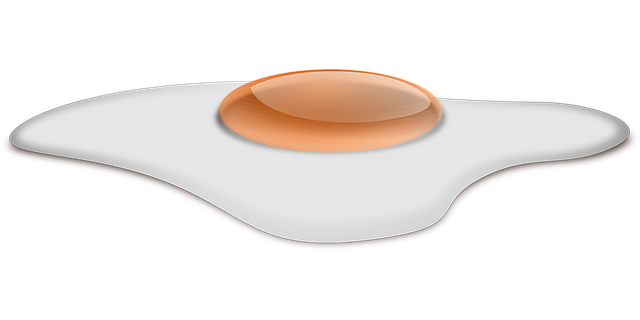Genetic testing for egg donors is a pivotal aspect of fertility treatment with donor eggs, offering crucial insights into potential health risks and genetic disorders. Through DNA analysis, this advanced screening method enables informed decision-making, reduces inherited disease risk, and navigates the fertility journey with confidence. Rigorous medical assessments include history reviews, physicals, and diagnostic tests to identify underlying conditions that could impact egg quality or fertilization success. Prospective donors should understand testing implications, maintain a healthy lifestyle, and communicate transparently with medical professionals for optimal outcomes. These improvements have enhanced fertility treatment with donor eggs, increasing success rates, safety, and access to parenthood for those facing fertility challenges.
“In the realm of fertility treatment with donor eggs, medical screening and genetic testing are pivotal components ensuring successful outcomes. This comprehensive guide delves into the intricacies of these processes, exploring their benefits and purpose in selecting optimal egg donors. From understanding advanced genetic technologies to navigating stringent medical screening protocols, we elucidate best practices for accurate results. Additionally, we examine the profound implications of these tests on enhancing fertility treatment success rates.”
Understanding Genetic Testing for Egg Donors: Benefits and Purpose
Genetic testing for egg donors plays a pivotal role in the realm of fertility treatment with donor eggs, offering both benefits and purposes that are crucial to ensuring safe and successful procedures. By analyzing an egg donor’s genetic makeup, this advanced screening method helps identify potential health risks, genetic disorders, or carrier statuses for specific conditions. This information is invaluable for prospective parents, as it allows them to make informed decisions about the fertility journey and choose a donor who aligns with their family-building goals.
Moreover, genetic testing provides a level of assurance by reducing the chances of unexpected complications or inherited diseases in future generations. It empowers individuals and couples undergoing fertility challenges to navigate the process with greater confidence, knowing that they are utilizing the best available data to make choices that could impact the long-term health and well-being of their children.
The Role of Medical Screening in Donor Selection
Medical screening plays a pivotal role in the selection process for egg donors, especially within the context of fertility treatment with donor eggs. It is a critical step to ensure the safety and health of both the donor and the recipient. Potential donors undergo comprehensive assessments to identify any underlying medical conditions or genetic predispositions that could impact their ability to donate or affect the quality of their eggs. This meticulous screening includes reviewing medical history, performing physical examinations, and ordering relevant tests to detect infectious diseases, chronic conditions, and genetic disorders.
By implementing rigorous medical screening protocols, fertility clinics can make informed decisions when matching donors with recipients. This process helps mitigate risks associated with complications during or after fertilization, ensuring the best possible outcome for all parties involved in the fertility treatment with donor eggs journey.
Preparing for Tests and Ensuring Accuracy
Preparing for medical screening and genetic testing is a crucial step in the journey of fertility treatment with donor eggs. Potential egg donors should be well-informed about the process and any necessary preparations. This includes understanding what tests are involved, how they work, and what results mean. It’s essential to maintain a healthy lifestyle leading up to the testing period, as certain conditions or medications might affect the accuracy of results. Regular exercise, balanced diet, and avoiding excessive stress can positively impact overall health and ensure optimal test outcomes.
Accuracy is paramount in genetic testing to avoid false positives or negatives that could delay fertility treatment. Medical professionals employ rigorous protocols to minimize errors, including using standardized procedures, validated tests, and qualified technicians. Donor candidates should also be transparent about their medical history, as undisclosed conditions might impact the results. Open communication ensures any potential issues are addressed promptly, allowing for accurate assessments and successful fertility journeys.
Implications for Fertility Treatment with Donor Eggs
The introduction of advanced medical screening and genetic testing for egg donors has significantly enhanced the quality and success rates of fertility treatments involving donor eggs. These rigorous assessments allow healthcare professionals to carefully select donors, ensuring that the eggs they provide are healthy and free from genetic abnormalities. This, in turn, improves the chances of successful fertilization, implantation, and pregnancy for recipient couples.
Furthermore, comprehensive testing enables the identification and mitigation of potential risks associated with donor egg use. By evaluating factors such as ovarian reserve, egg quality, and genetic makeup, healthcare providers can tailor treatment plans to individual needs, optimizing outcomes for both donors and recipients. As a result, fertility treatments with donor eggs have become more precise, safe, and effective, expanding access to parenthood for many individuals and couples facing fertility challenges.
Medical screening and genetic testing are essential components of selecting suitable egg donors, ensuring the safety and effectiveness of fertility treatment with donor eggs. By meticulously evaluating potential donors’ medical history and genetic makeup, clinics can minimize risks and maximize the chances of successful pregnancies. These rigorous processes play a pivotal role in navigating the complex landscape of donor egg fertility, ultimately contributing to happier outcomes for both donors and recipients.
